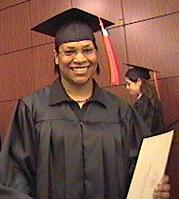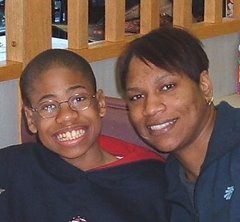The Age of Autism: Dismaying 'Times'
By Dan Olmsted
United Press International
Published July 6, 2005
WASHINGTON -- Who knew the longest word in the English language would be the best one to explain what is wrong with a newspaper article?
The word is related to establishment bias, and the newspaper in question is none other than The New York Times.
June 25, the paper that sold us on WMDs in Iraq and virtually convicted Wen Ho Lee as a spy for the Chinese, weighed in with a front-page story on whether vaccines cause autism.
Preposterous, the Times concluded, without dirtying its white-gloved hands by actually having to say so. All the right people agree, and the Times quoted them to persuasive effect. The headline said it all: "On Autism's Cause, It's Parents vs. Research."
Those whose eyewitness experience convinces them otherwise were cast as hysterical, homicidal scientific illiterates who talk to God through elderly gentlemen and lock children in saunas in their crazed attempts to make money.
The right kind of people, apparently, do not include thousands of parents of autistic children, or thousands of Amish, almost all of whom do not vaccinate their children and do not seem to suffer much autism.
The parents say they have watched their children descend into autism after receiving vaccinations. Doctors who treat the mostly unvaccinated Amish say they have seen every other kind of disorder, but almost no autism.
Who cares, when you have "medical experts" and peer-reviewed "scientific studies" galore? These people are credentialed, for Heaven's sake. They teach at the schools and work at the agencies that count. They hew to the scientific method. They are top-drawer -- and they say autism is not caused by vaccines.
Why, then, does the intellectual version of trailer trash -- untutored parents, the frightfully out-of-its-depth "lay press," people without the right degrees, the right pedigrees, the right publications, the right to an opinion -- keep intruding on this turf?
Because the matter is nowhere near as cut-and-dried as the Times has portrayed it. Absent, for example, were any of the studies that do point a finger at vaccines and the mercury-based preservative thimerosal. Also missing were the critiques of the science the Times relied on, critiques that may be wrong but are certainly worth hearing.
Dismissed were all of the alternative treatments many parents say vastly improved their children's condition. As the Times noted, no studies confirm that assertion, but why not? Why not study them urgently and, if it is discovered that removing mercury from autistic kids' systems really has some effect, what are the implications of that?
Nor was there an acknowledgement that, although the experts maintain there is no link, they have never -- never -- studied the most obvious population: the unvaccinated. All they would need to do is count the number of unvaccinated children with autism and compare that ratio to the rest of society.
If the experts had done this, that issue could have been taken off the table by now. Instead, the real debate is stuck at the starting gate. Health officials at the Centers for Disease Control and Prevention say they do not even know if autism has increased in the past decade, although they have had 10 years to figure it out.
I am sure the Times will be very sorry if it finds its editors were in error about the subject and condescending to the parents of autistic children. We can see the Editor's Note now, modeled on "The Times and Wen Ho Lee":
Headlined "The Times, Vaccines and Autism," the editors admit "that our dismissal of the theory was premature and relied too heavily on epidemiological studies that proved to be flawed and that we did not review independently. Worse, we undervalued the eyewitness accounts of parents who watched their children disappear into autism after vaccinations."
The worst part is the Times probably will make the same mistake again on some other important issue -- unless it fixes its fatal flaw of comfortable certainty, otherwise known as arrogance or, in the terminology of the Greek tragedy this is, hubris.
Offering alms to the autistic in two or three years really will not suffice. The New York Times -- plus ABC, NBC and many others, for that matter -- needs to join the rest of us who are thinking for ourselves and grappling with whether vaccines -- the greatest public-health achievement of all time -- inadvertently triggered a disaster for a minority of families.
Getting back to our original theme, the problem with the Times is establishmentarianism, "the doctrine of supporting the social or political establishment," as wordreference.com describes it. Those who diss that establishment encounter another layer of rejection: antidisestablishmentarianism. At last, a practical use for that word!
Until the simple question of what causes autism is clearly established, a lot of people touched by the condition just will not shut up, whether that distresses the enforcers of the longest word in the English language or not.
Article at: http://www.wpherald.com/storyview.php?StoryID=20050706-033143-7347r
For more information and resources on autism, go to:
http://www.autismconcepts.com/.
Forget what you haven't heard… Family site shares news, resources, announcements and free or low-cost ways to help us manage day-to-day living with autism.
Crystal Brown

About Me

- Crystal
- AutismConcepts.com and Child-Autism-Parent-Cafe.com share a large collection of useful autism information, resources, and how-to articles written by authors who are touched by autism, offering practical solutions to families. Particularly minority and underserved families and caregivers who may not know what to do or where to go for help.
MJ And Me

Blog Archive
-
▼
2005
(194)
-
▼
July
(28)
- Autism - Cut The Crap
- Boys Take Stand In T-Ball Case
- T-ball victim invited to Oakland A's game
- Scientists Advance Understanding of the Role of a ...
- Study reveals parents' MMR views BBC News
- Study: Children with Autism Have Distinctly Differ...
- Tee-ball coach charged in assault
- Special education goes home
- A Kennedy Fuels Autism Debate
- Free Kids and Teens Printable Coloring Pages
- Study Finds Industrial Pollution Begins in the Womb
- Toxic elements found in infants' cord blood
- Parents use alternative method to treat daughter's...
- Should I Vaccinate My Child?
- GAO Report - Child Welfare: Better Data and Evalua...
- Autism, Mercury and the California Numbers
- Study: Positive touch, the implications for parent...
- The Age of Autism: Both Sides Now
- Number of Autism Cases Declines in Calif.
- What is MTHFR Mutation? - Toward Understanding the...
- Mistrust rises with autism rate
- Autism drug cuts aggression
- Autism, mercury, and politics by Robert Kennedy Jr.
- The Age of Autism: Dismaying 'Times'
- CODEX Threat to Supplement Market
- Vaccine tie to autism gains new supporters
- Study: New model may better predict outcomes for c...
- Study questions extent of autism in the U.S.
-
▼
July
(28)